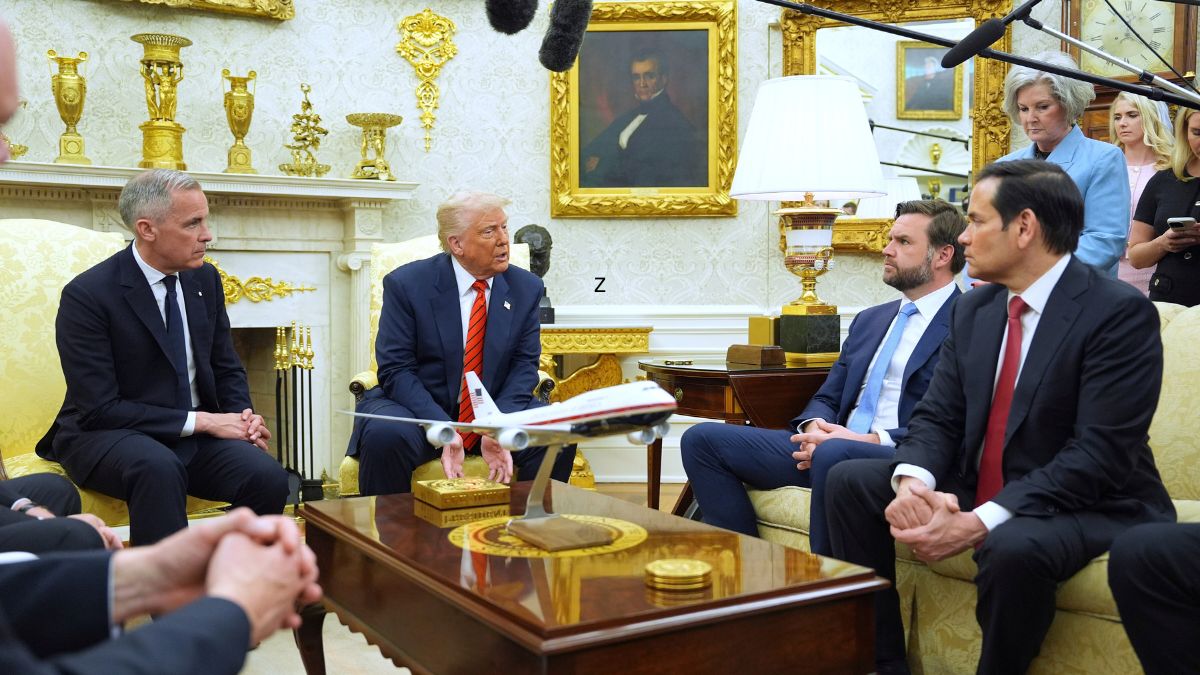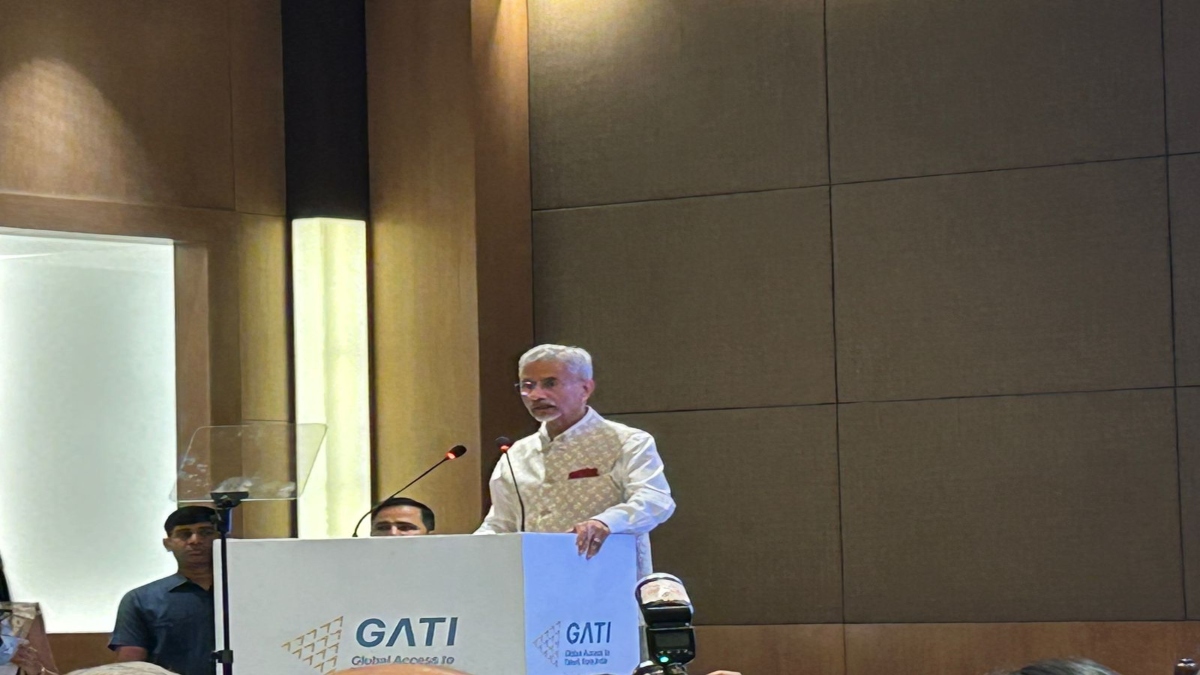In their first face-to-face meeting, US President Donald Trump and newly elected Canadian Prime Minister Mark Carney exchanged pleasantries and pointed disagreements, clashing on trade tariffs, the future of Canada-US relations and the controversial idea of Canada joining the US as its 51st state.
The Oval Office talks which began on a friendly note grew tense as Trump refused to lift tariffs and Carney firmly rejected any suggestion of Canadian statehood. Here are the key takeaways from their meeting:
Trump doubles down on tariffs, Carney stands firm on sovereignty
The meeting between Donald Trump and Mark Carney ended on a tense note as the US president refused to lift tariffs on Canadian imports, insisting the US doesn’t need cars or steel from its northern neighbour. Carney, in turn, reiterated Canada’s sovereignty, saying that “Canada is not for sale”—a stance that reportedly helped him win his recent election. Trump playfully responded, “never say never,” while Carney mouthed “never” to reporters.
Trump revives ‘51st state’ idea, Carney pushes back
Despite the light tone at times, Trump revisited his controversial suggestion that Canada should become the 51st U.S. state. He called it a potential “wonderful marriage” but acknowledged it would take two sides to agree. Carney firmly rejected the notion both publicly and privately, stating, “It won’t be for sale ever.” Trump responded that “Canada loves us and we love Canada,” hinting that anything could happen “over time.”
Uncertainty looms over USMCA as Trump questions its future
Trump cast doubt on the future of the United States-Mexico-Canada Agreement (USMCA), suggesting the trade pact may no longer be necessary. He described it as a “transitional deal” that may soon be up for renegotiation. While Carney acknowledged that some elements of USMCA might need updating, he emphasised the agreement as a foundation for further dialogue.
Houthis ceasefire prompts Trump to halt airstrikes
During the meeting, Trump made a significant foreign policy announcement unrelated to Canada: the US would immediately halt its bombing campaign against Houthi rebels in Yemen. He said the Houthis had signalled they no longer wanted to fight and had promised to stop targeting ships. Secretary of State Marco Rubio echoed Trump’s remarks, calling it a positive development for global shipping security.
A more conciliatory tone toward Carney
While Trump held firm on trade issues, his tone toward Carney marked a shift from past interactions with Canadian leaders. He praised the new prime minister as “a very talented person” and jokingly claimed some credit for Carney’s electoral win. In contrast to the contentious relationship he had with former PM Justin Trudeau, Trump’s approach this time was noticeably more diplomatic, if still punctuated by provocative remarks.


)
)
)
)
)
)
)
)
)